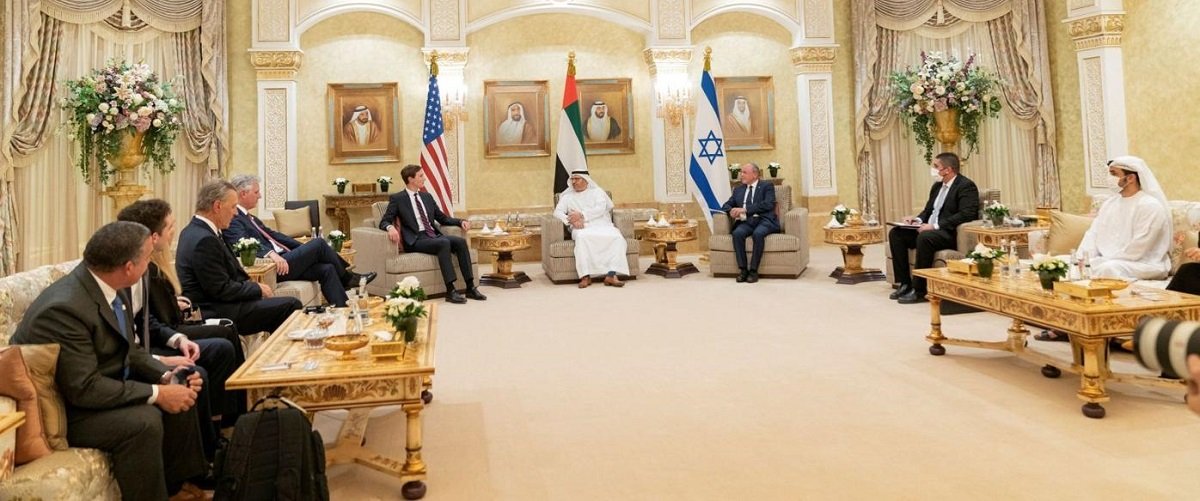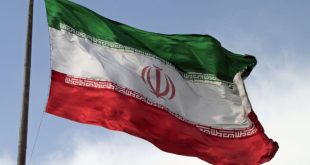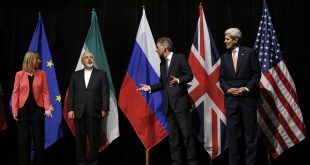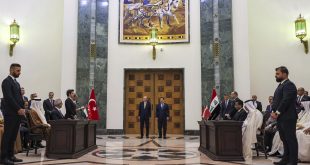In August 2020 the UAE became the third Arab country to normalize relations with Israel after Egypt (1979) and Jordan (1994), and the first country in the Gulf region; however, secret relationships have been going on for years. The UAE-Israel historical deal was widely welcomed by some of the region’s leaders, as well as the European Union and the United States. But as expected, the announcement is not favorable to Iran; and Turkey also stated its opposition to UAE’s normalization with Israel.
Establishing diplomatic relations will lead to possible trade and energy collaboration between the two states. Israel has sufficient reserves of natural gas, but limited oil resources. Energy demand is steadily increasing annually, and the issue of national security and energy shortages has necessitated Israel’s need for energy diplomacy. For this reason, Israel has defined its oil and gas activity in three regions: The Middle East (Qatar as the world’s largest LNG exporter), the Mediterranean (Cyprus and Greece), and Eurasia. This scope of activity also has an important aspect apart from domestic energy supply; diplomacy is impossible without economic influence.
UAE’s Renewable Energy
The share of renewable energy in the energy sector of countries is increasing. Some countries have become exporters of technology in this industry with a focus on renewable energy, while other countries and private companies are investing in the renewable energy industry of other countries, using substantial financial resources. This action not only increases the level of political and economic relations between the two countries, but also provides grounds for the presence of these companies in similar projects in the region. The UAE plans to increase the share of renewable energy in its portfolio, creating more than 90,000 jobs in the renewable energy sector by 2030, including at its most popular renewable energy project in Masdar City. The UAE aims to use renewable energy and pay special attention to technology and innovation for energy production. UAE private companies in the renewable energy sector are actively involved in many renewable energy projects in the region. Abu Dhabi has already invested about $46 million in renewable energy projects in Africa and the Caribbean as part of government plans to invest $340 million in sustainable development goals of developing countries.
Masdar City
The UAE’s most ambitious project, the city of Masdar, is underway. Last month, a memorandum of understanding was signed between the Afghan government and the Emirati company Pal Four Solar Energy for a solar power plant that will generate 3,000 megawatts of power for Afghanistan. The latter currently needs at least 2,000 megawatts of electricity to support its residential and economic sectors.
Masdar Abu Dhabi also signed a contract with the North American Renewable Energy Company (EDF). “Under the agreement, Masdar will acquire a 50 percent stake in three Nebraska-Texas wind farm projects with 815 megawatts of energy and five solar-powered solar projects in California with two full-capacity energy storage systems,” the company’s website said. “It has purchased 689 megawatts of solar energy and 75 megawatts of lithium-ion battery storage.”
UAE Bestows First Official Headquarters to Israel
The Renewable Energy Organization is a subsidiary of the United Nations based in the United Arab Emirates. In 2016, the UAE handed over an office to the organization to develop renewable energy. Under the same pretext, an office was conferred to Israel. It was the first official headquarters to be granted to Israel in an Arab country. Israel previously had embassies only in Jordan and Egypt as well as in several African countries such as South Sudan and Ethiopia. The headquarters of the Renewable Energy Organization was a special opportunity for Israel that the country had never experienced before in any Islamic-Arab state.
Israeli Renewable Energy
In 2019, Israel was able to supply 8.7 percent of its energy needs through solar power plants and solar panels. Last year, 1.1 gigawatts were added to the power generation capacity in Israel’s solar power plants. According to the Israeli Ministry of Energy, the country plans to increase its share of renewable energy from 17% to 30% by 2030 with an investment of $22 billion. In the meantime, solar energy has received more and more attention. To achieve its goal of reducing carbon dioxide emissions, Israel plans to gradually replace coal and polluting power plants with gas and solar power plants. If Israel can implement this plan, it is predicted that these efforts will lead to a 93% reduction in air pollution and a 50% reduction in greenhouse gas emissions. About 85% of Israeli homes now use solar energy.
Eastern Mediterranean Pipeline
On January 2, 2020, an agreement was signed in Athens between the leaders of Israel, Greece, and Cyprus to build the Eastern Mediterranean Pipeline. The capacity of this pipeline is estimated at two billion cubic meters, which according to the plan should be put into operation in 2025. This pipeline, if completed, could meet 10% of European energy demands. The cost of building this gas project is estimated at about seven billion dollars. The outbreak of the coronavirus has reduced oil and gas prices, and many energy projects have run into financial difficulties. If the impact of the coronavirus on the global economy is reduced and the problems in the Mediterranean are resolved, Israel can use the UAE’s financial resources to complete the project, although the problems among the Mediterranean coastal states seem unlikely to be resolved soon.
Israel has also become an exporter of natural gas. Israel can both increase the volume of natural gas and LNG exports and play an active role in the energy security of neighboring countries by increasing gas production from the Leviathan field and completing the Israeli LNG terminal project. As part of normalizing relations with the UAE, Israel can export gas to Abu Dhabi. The UAE also has the necessary facilities, so the import of UAE gas from other countries such as Qatar will be reduced.
Normalization of Trade
Whereas the oil-rich Gulf states maintain more difficult routes to Europe, the Eilat Ashkelon Pipeline, which once carried Iranian oil from the Red Sea to the Mediterranean, may now be used to transport UAE oil. The United Arab Emirates ended a decades-long boycott of Israel two weeks after its diplomatic rapprochement; thus, trade with Israeli goods and the purchase of these goods is now allowed in the United Arab Emirates. Israeli Prime Minister Benjamin Netanyahu welcomed the move, which would allow companies and individuals in the UAE to enter into commercial agreements with Israeli companies or individuals. As the UAE formally ends its boycott of Israel, it can be expected that the volume of trade between the two countries will increase and Israel can become a supplier to UAE oil importers using the existing infrastructure.
As an oil-rich country, the UAE is one of the major capitals of the Middle East and one of the most advanced trading centers in the world. Israeli companies interested in doing business with the UAE are targeting Gulf states’ markets. Most of these companies are investing in cybersecurity equipment, water management, and defense equipment. The UAE is a major trading hub connecting Gulf countries with the rest of the world; with few laws and restrictions, the country can provide economic opportunities for Israeli companies to make a profit. It is estimated that there are currently about 300 Israeli companies operating in the UAE, most of which operate through international branches. Normalization will reduce the heavy costs of Israeli companies operating internationally in the UAE.
A Possible Future Energy Partnership
With the nascent normalization of relations between the two countries, Israel can become an importer of Emirati oil. In the field of renewable energy, the technology and financial resources of the UAE can serve Israel’s goals of reducing the effects of climate change and increase the share of renewable energy. The possibility of the UAE investing in major Israeli gas fields could bolster Israel’s gas exports by increasing gas production capacity. Completion of the Eastern Mediterranean Pipeline project could be one of the pillars of Israeli-UAE cooperation in the future, if the necessary conditions are provided. We will have to wait for the details of the historic UAE-Israel agreement to be released, but it is clear that energy can become the backbone of Israeli-UAE economic and political relations.





